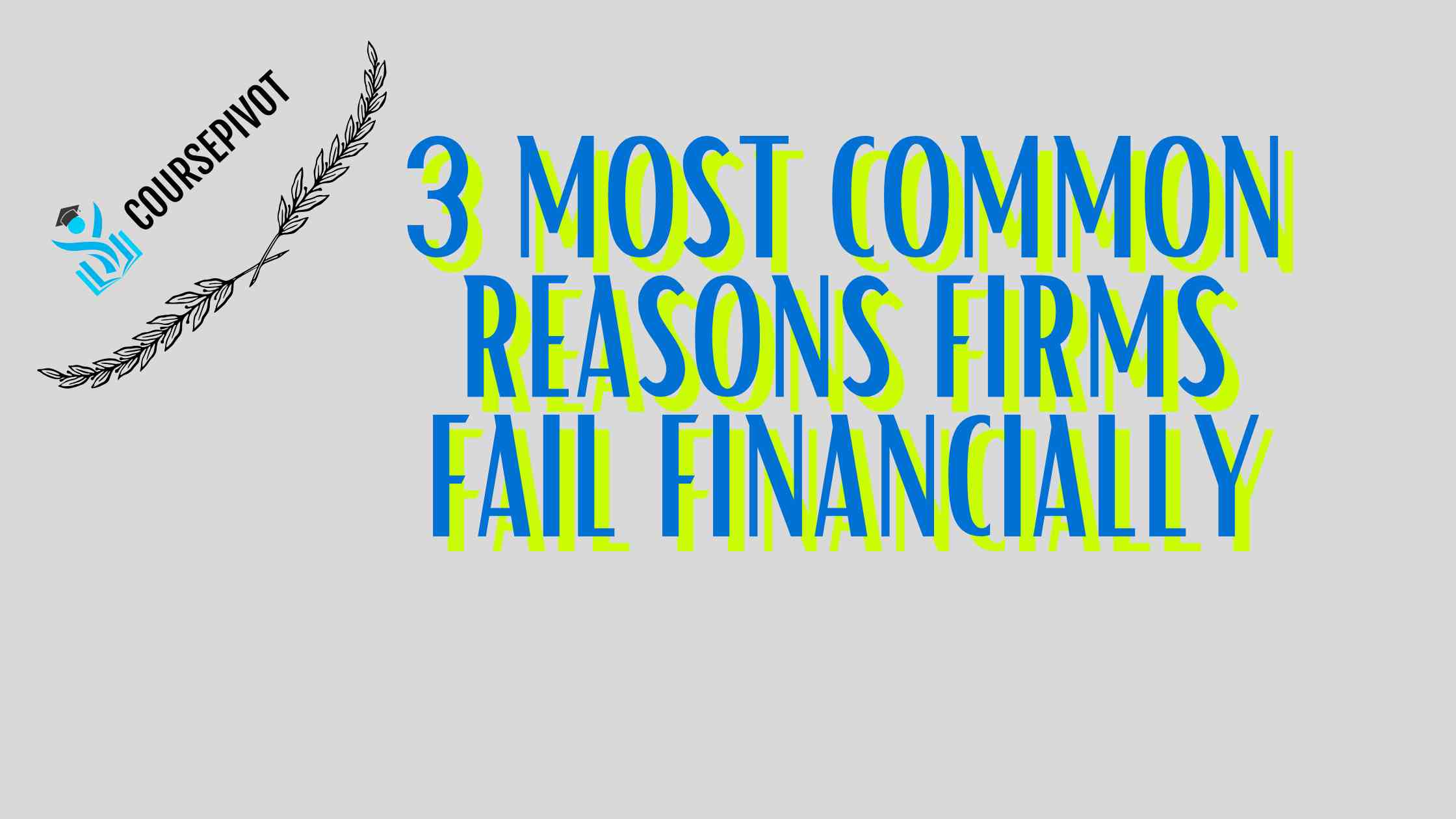
3 Most Common Reasons Firms Fail Financially
When a business goes under, it rarely happens overnight.
There are always signs.
Subtle warning lights.
Shifts in cash flow.
Missed projections.
And suddenly—the financial failure is complete.
But why do firms fail financially?
What are the most common reasons businesses collapse—even when the product is great or the market seems ready?
Read our blog: 5 things to consider when evaluating a business opportunity
If you’ve ever worked inside a company going through hard times—or if you’ve built a business yourself—you’ve likely seen these reasons unfold firsthand.
Let’s break down the 3 most common reasons firms fail financially, and why recognizing them early can make all the difference.
1. Poor Cash Flow Management
You can have high revenue and still go bankrupt.
I’ve seen it happen.
Cash flow is about timing—not just profit. It’s about whether you can pay the bills right now.
Most firms don’t fail because they never made money.
They fail because the money didn’t come in fast enough to cover costs.
Some classic signs of poor cash flow management include:
- Paying suppliers faster than clients pay you
- No clear forecast of cash inflow/outflow
- Relying too much on short-term debt
- Sudden payroll struggles
What can fix it?
Tight financial controls. Smart invoicing systems. Clear terms. And yes, sometimes making tough choices—like cutting back on spending until revenue stabilizes.
Without cash on hand, a company can’t survive—even if it’s technically profitable on paper.
2. Lack of Financial Planning or Oversight
This one hits harder than people realize.
Many business owners are visionaries, marketers, or product builders—but not financial experts. And they don’t always bring in the right people to fill that gap.
Without a budget, forecasts, or financial goals, the business ends up driving blind.
Some clear risks include:
- No plan for economic downturns or seasonal slumps
- Overestimating future revenue
- Undervaluing long-term costs
- Poor understanding of key metrics like burn rate, gross margin, or breakeven point
I’ve worked with companies that didn’t know how much they were spending monthly on tools or software subscriptions until it was too late.
They were bleeding quietly—for months.
What’s the lesson?
Hire a financial controller. Use real-time tools. Create a budget you revisit monthly—not just once a year.
Financial ignorance is one of the top reasons firms fail financially, especially startups and fast-scaling businesses.
3. Overexpansion or Growing Too Fast
Growth sounds exciting—until it chokes your finances.
I’ve watched firms open three new offices before the first was profitable. I’ve seen startups spend heavily on talent, tech, or marketing before locking in their first sustainable client base.
Why is this dangerous?
Because every expansion costs money up front. It demands cash, resources, and people—and assumes future revenue will cover it.
But if the market shifts?
If customer demand slows?
If the projections were off by just a little?
The entire business structure can collapse under its own weight.
Watch out for signs like:
- Hiring too quickly
- Taking on massive loans for expansion
- Entering multiple markets without securing one
- Relying on hoped-for funding instead of real income
The fix?
Scale with strategy. Grow based on data—not emotion or ego. Build strong foundations before you stretch.
What Can We Learn from Firms That Fail?
Financial failure doesn’t mean the idea was bad.
It often means the execution lacked discipline, planning, or timing.
The three most common reasons firms fail financially—poor cash flow, lack of financial planning, and reckless growth—can happen to any business, in any industry.
But they’re also preventable.
If you’re building something right now, ask yourself:
- Do I understand my cash flow in detail?
- Do I have a real financial plan—or am I guessing?
- Am I scaling because I’m ready—or because I want to be ready?
Your answers could be the difference between thriving and folding.
Cite this article
You can copy and paste your preferred citation format below.
Martin, L. & Arquette, E.. (2025, May 5). 3 Most Common Reasons Firms Fail Financially. Coursepivot.com. https://coursepivot.com/blog/3-most-common-reasons-firms-fail-financially/



